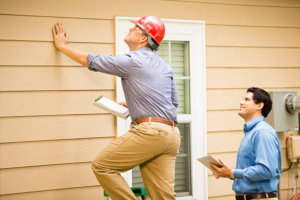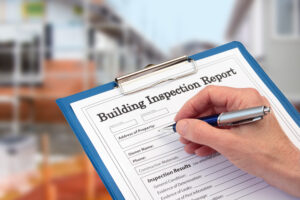Buying a home is one of the most significant investments you’ll ever make, and ensuring that the property is structurally sound and free from hidden defects is crucial. In Australia, the building inspection process plays a vital role in helping homebuyers make informed decisions. Whether you’re a first-time homebuyer or a seasoned property investor, understanding what to expect during a building inspection in Australia is essential. Resicert will guide you through the process, covering key aspects, regulations, and tips for a successful inspection.
Why Do You Need a Building Inspection?
A building inspection is a comprehensive examination of a property’s condition, including its structural integrity and potential defects. Here’s why it’s crucial:
- Uncover Hidden Issues: An inspection can reveal hidden problems such as structural damage, plumbing or electrical issues, termites, or mold, which might not be visible during a casual walkthrough.
- Negotiation Power: Armed with inspection findings, you can negotiate with the seller for repairs or a lower purchase price if significant issues are discovered.
- Peace of Mind: Knowing the true condition of the property gives you peace of mind, helping you make an informed decision about whether to proceed with the purchase.
When to Schedule a Building Inspection
The timing of your building inspection is essential. Typically, it’s done after your offer has been accepted but before the contract becomes unconditional. This allows you to include a clause in the contract that specifies that the purchase is subject to a satisfactory building inspection. In some cases, you may need to act quickly, so it’s a good idea to have an inspector lined up in advance.
What to Expect During the Inspection
During the inspection, the inspector will thoroughly examine the property, inside and out. Here are some areas they will focus on:
- Structural Integrity: They’ll check for signs of structural damage or instability, including cracks, movement, or uneven floors.
- Plumbing and Electrical: Inspectors will evaluate the plumbing and electrical systems for any issues, such as leaks, faulty wiring, or outdated components.
- c. Roof and Gutters: The condition of the roof, gutters, and downpipes will be assessed for signs of damage or leaks.
- Pest and Termite Inspection: In some areas, a separate pest and termite inspection may be necessary to identify infestations that could be costly to address.
- Safety Hazards: The inspector will also look for safety hazards, including non-compliance with building codes.

The Inspection Report
Once the inspection is complete, you’ll receive a detailed report outlining the findings. This report is a crucial document that will help you make an informed decision about the property. It should include:
- Descriptions of Defects: Clear descriptions of any defects or issues found during the inspection.
- Photos: Visual evidence of problem areas.
- Recommendations: Suggestions for repairs or further investigations, if necessary.
- Cost Estimates: Some reports may include estimates for repairs, which can be useful in negotiations.

Taking Action Based on the Report
Depending on the inspection report, you have several options:
- Renegotiate: If significant issues are found, you can negotiate with the seller to address the problems or lower the purchase price.
- Walk Away: If the inspection reveals serious problems that the seller is unwilling to address, you can choose to walk away from the deal.
- Proceed with the Purchase: If the inspection report is satisfactory, you can move forward with confidence.
Conclusion
The building inspection process in Australia is a critical step in the home-buying journey. It provides valuable insights into the condition of the property and empowers you to make informed decisions. By choosing a qualified inspector, scheduling the inspection at the right time, and carefully reviewing the inspection report, you can navigate the process with confidence and ensure that your investment is a sound one. Remember that the small cost of a building inspection can save you from significant headaches and expenses down the road. Resicert is here to support you, enhancing your home-buying journey and ensuring that you can make confident and sound investment choices.






